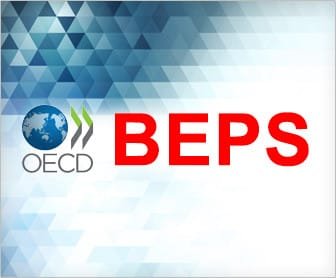Phone: +966-50-7024644 | Email: info@ghalibconsulting.com
Table of Contents
Introduction
Base Erosion and Profit Shifting (BEPS) refers to tax strategies used by multinational corporations to shift profits to low-tax jurisdictions, eroding the tax base of higher-tax countries. Over the past decade, both the United States (USA) and Saudi Arabia (KSA) have implemented significant reforms to combat BEPS, aligning with global standards set by the OECD.
This article explores the evolution of BEPS regulations in the USA and KSA, their impact on businesses, and how Ghalib Consulting helps companies navigate these complex tax landscapes.
Image: Global tax compliance is critical for multinational businesses.
1. What is BEPS?
BEPS involves tax avoidance strategies where companies exploit gaps in tax rules to artificially shift profits to tax havens. Common tactics include:
✔ Transfer mispricing (over/undercharging between subsidiaries)
✔ Excessive interest deductions (via intra-group loans)
✔ Treaty shopping (abusing tax treaties for lower rates)
The OECD’s BEPS Project (2015) introduced 15 Action Plans to close these loopholes, adopted by over 140 countries, including the USA and KSA.
2. BEPS Evolution in the USA
Key Developments:
- Tax Cuts and Jobs Act (TCJA, 2017): Introduced GILTI (Global Intangible Low-Taxed Income) and BEAT (Base Erosion Anti-Abuse Tax) to curb profit shifting.
- OECD Pillar Two (2023): The US supports a global minimum tax of 15% to prevent tax competition.
- Stricter Transfer Pricing Rules: Enhanced documentation requirements for cross-border transactions.
Impact on Businesses:
✔ US multinationals must reassess offshore structures.
✔ Higher compliance costs but reduced audit risks.
Image: US tax reforms aim to prevent profit shifting.
3. BEPS Evolution in Saudi Arabia (KSA)
Key Developments:
- ZATCA (Saudi Tax Authority) Enforcement: Adopted OECD BEPS Action Plans in 2018.
- Transfer Pricing (TP) Regulations (2019): Mandates local file, master file, and CbC reporting.
- Digital Economy Taxation: VAT and withholding taxes on digital services.
Impact on Businesses:
✔ Higher transparency in intercompany transactions.
✔ Penalties for non-compliance (up to SAR 1 million).
Image: Saudi Arabia has tightened tax rules for multinationals.
4. How Ghalib Consulting Helps Businesses Comply with BEPS
Navigating BEPS regulations requires expert tax planning and compliance strategies. Our services include:
✅ BEPS Risk Assessment – Identify exposure to profit-shifting rules.
✅ Transfer Pricing Documentation – Prepare OECD-compliant reports.
✅ Tax Structuring Advisory – Optimize cross-border transactions legally.
✅ Dispute Resolution – Handle tax audits and disputes with ZATCA/IRS.
📞 Contact Us for BEPS Compliance Support:
📧 ghalib@ghalibconsulting.com | 📞 *+966-50-7024644*
5. Future of BEPS: What’s Next?
- Pillar Two Implementation (2024-2025): Global minimum tax enforcement.
- Digital Taxation Expansion: More countries taxing digital services.
- Increased Cross-Border Cooperation: Joint audits between tax authorities.
Businesses must stay proactive to avoid penalties and reputational risks.
Conclusion
BEPS regulations in the USA and KSA have evolved significantly, requiring businesses to adopt transparent tax practices. Companies that adapt early will minimize risks and maintain compliance in an increasingly regulated world.
🔗 Read More:
Tax Accounting & Planning Services | Financial Compliance in KSA




